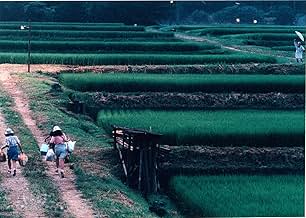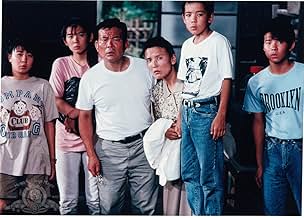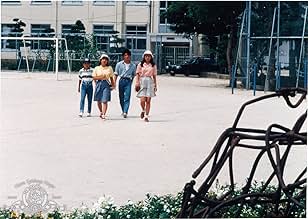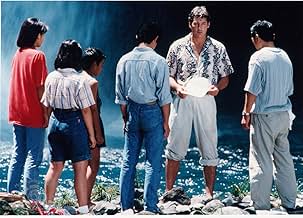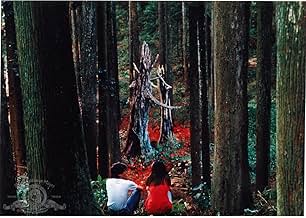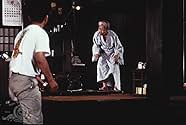A beautiful and deeply moving work,it deals with a taboo subject which is rarely treated on the screen.The approach is much different from that of Alain Resnais in "Hiroshima mon amour",and the main reason is that the director is Japanese.Far from Marguerite Duras' verbal logorrhea,Kurosawa lets us in the tragedy through children's eyes,and their simple and naive words.These children,who visit the memorial, only know what the history books tell:almost nothing.
One of the movie's main subject is building some kind of bridge between two generations(a bridge over troubled water,because the adults are rather unsympathetic characters).Kurosawa's granny is universal,she 's the embodiment of suffering,forgiveness and wisdom."Blame it on the war" she keeps on repeating during the whole movie.And her hard-earned peace of mind ,she tries to communicate it to her four grandsons.She does want to see his brother ,now dying,who emigrated to Hawai and made his fortune in pineapples, a long time ago,and his family.The children's fathers are mean little bourgeois,only interested in these American relatives' dough and luxury mansion with pools,the mothers hateful silly geese.None of them can understand the grandmother any more.
So if there's some hope to be found,it can only lie in the relationship old/young,skipping a whole generation,with the exception of minor Richard Gere character.The four children and their granny sitting under a blue moonlight when the adults are talking social promotion and money is beautifully filmed.But it will not delude for long.The last pictures are a real metaphor:sure the road to follow for the youngsters is the grandmother's one,which does not forget the past ,but it's a rocky road,edged with chasms .


